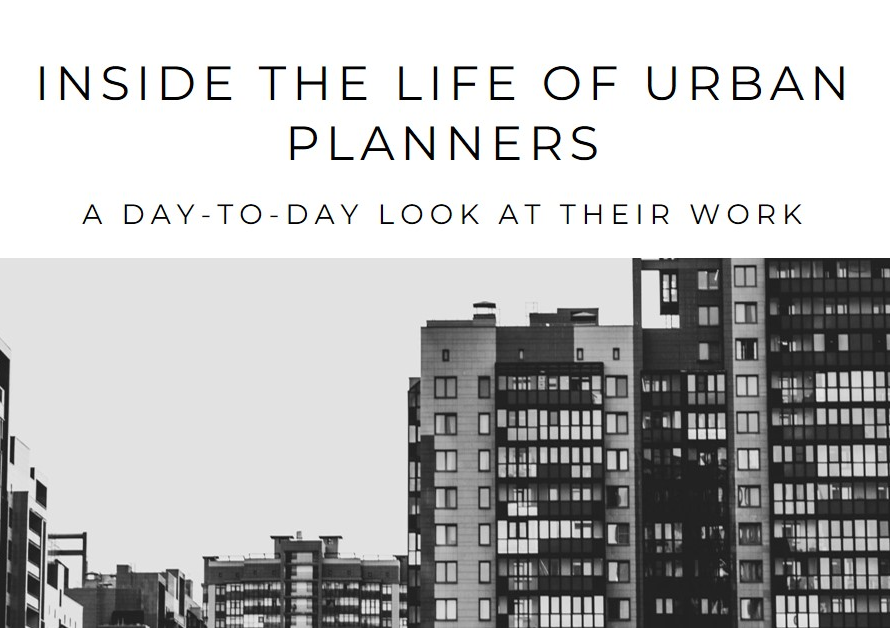
Table of Contents
- Introduction:
- Shaping Cities: Becoming an Urban Planner
- Policy Influence: Working in Government
- Designing Sustainable Communities: Environmental Planning
- Innovating for the Future: Transportation Planning
- Building the Backbone: Infrastructure Planning
- Championing Affordable Housing: Housing Development
- Preserving History: Historic Preservation
- Driving Economic Growth: Economic Development
- Bridging the Gap: Community Engagement
- Beyond the Traditional: Academia and Research
- Conclusion: A World of Opportunities
Introduction:
Urban planning is a dynamic and multifaceted field that touches nearly every aspect of our built environment. For those who hold an urban planning degree, the career opportunities are vast and varied. From shaping city landscapes to influencing public policies, urban planners play a crucial role in designing sustainable and livable communities. This blog post explores the diverse career paths and opportunities available to urban planning graduates, shedding light on how this degree can be a gateway to a fulfilling and impactful career.
Shaping Cities: Becoming an Urban Planner
Urban planners are the architects of cities. They design urban spaces, plan for future growth, and work to ensure that communities are sustainable and livable. As an urban planner, you will engage in tasks such as zoning, land use planning, and community development. You will work closely with public officials, developers, and the community to create comprehensive plans that guide the growth and development of urban areas.
In addition to technical skills, urban planners need strong analytical and communication skills. They must be able to assess complex data, understand regulatory requirements, and effectively communicate their plans to a diverse audience. This role offers the opportunity to make a tangible impact on the environment and quality of life in communities.
Policy Influence: Working in Government
A significant number of urban planning graduates find rewarding careers in local, state, or federal government. In these roles, you might work on developing and implementing policies that affect housing, transportation, environmental protection, and economic development. Government positions can range from working as a city planner or transportation planner to holding key roles in housing authorities or environmental agencies.
Government roles often provide a stable career path with opportunities for advancement. Moreover, these positions offer a chance to directly influence public policy and contribute to the public good. Whether you’re drafting new regulations or working on long-term strategic plans, your efforts will help shape the future of cities and regions.
Designing Sustainable Communities: Environmental Planning
Environmental planners focus on creating communities that are sustainable and resilient. This specialty within urban planning emphasizes the importance of integrating environmental considerations into the planning process. Environmental planners work on projects related to climate change adaptation, natural resource management, and sustainable development.
By pursuing a career in environmental planning, you can help mitigate the impacts of urbanization on natural ecosystems. Your work might involve conducting environmental impact assessments, developing green infrastructure projects, or creating plans for disaster resilience. This field is particularly relevant today as communities worldwide face the challenges of climate change and environmental degradation.
Innovating for the Future: Transportation Planning
Transportation planners play a critical role in designing efficient and accessible transportation systems. With an urban planning degree, you can work on projects that improve public transit, reduce traffic congestion, and promote alternative modes of transportation such as biking and walking. Transportation planning involves extensive data analysis, public engagement, and coordination with various stakeholders.
As a transportation planner, you will contribute to creating transportation networks that enhance mobility, reduce environmental impact, and support economic development. This field offers numerous opportunities to innovate and improve the way people move within urban areas.
Building the Backbone: Infrastructure Planning
Infrastructure is the backbone of any city, and infrastructure planners ensure that this backbone is strong and reliable. With an urban planning degree, you can work on the planning and development of critical infrastructure such as water supply systems, sewage treatment facilities, and energy grids. This field requires a deep understanding of engineering principles, project management, and regulatory requirements.
Infrastructure planners play a vital role in ensuring that cities can meet the needs of their residents and businesses. They work on projects that enhance public health, safety, and quality of life. By planning and maintaining robust infrastructure systems, you can help build resilient and thriving communities.
Championing Affordable Housing: Housing Development
Affordable housing is a pressing issue in many urban areas. Urban planners can specialize in housing development to address this challenge. As a housing planner, you might work for non-profit organizations, government agencies, or private developers to create affordable and accessible housing solutions.
Your work could involve developing housing policies, securing funding for housing projects, and working with communities to identify housing needs. By focusing on affordable housing, you can make a significant difference in improving living conditions and promoting social equity.
Preserving History: Historic Preservation
Historic preservation is another exciting career path for urban planning graduates. Preservation planners work to protect and enhance the cultural and historical assets of communities. This might involve conducting surveys of historic sites, developing preservation plans, and working with property owners and government agencies to maintain and restore historic structures.
Preservation planning requires a blend of architectural knowledge, historical research, and community engagement. By preserving historic sites, you help maintain the cultural heritage and identity of communities, ensuring that future generations can appreciate their historical significance.


Driving Economic Growth: Economic Development
Economic development is a critical aspect of urban planning. Economic development planners work to attract and retain businesses, create jobs, and stimulate economic growth in communities. This might involve developing economic strategies, conducting market analyses, and working with local businesses and investors.
In this role, you will focus on creating a vibrant and diverse economy that benefits all residents. Economic development planners play a key role in shaping the economic landscape of cities and regions, promoting prosperity and sustainability.
Bridging the Gap: Community Engagement
Effective urban planning requires meaningful community engagement. Community engagement specialists work to involve residents in the planning process, ensuring that their voices are heard and their needs are met. This role involves organizing public meetings, conducting surveys, and facilitating workshops and focus groups.
By fostering strong relationships between planners and the community, you can help create plans that reflect the aspirations and concerns of residents. Community engagement is essential for building trust and ensuring that planning efforts are inclusive and equitable.
Beyond the Traditional: Academia and Research
For those interested in teaching and research, an urban planning degree can lead to a career in academia. As a professor or researcher, you can contribute to the advancement of knowledge in the field of urban planning. You might conduct research on urban issues, publish academic papers, and teach the next generation of urban planners.
Academic careers offer the opportunity to explore new ideas and approaches in urban planning. By engaging in research and education, you can shape the future of the profession and contribute to the development of innovative solutions to urban challenges.
Conclusion: A World of Opportunities
An urban planning degree opens the door to a wide range of career opportunities. Whether you are interested in shaping city landscapes, influencing public policies, or promoting sustainability and social equity, there is a path for you. The field of urban planning is diverse and dynamic, offering the chance to make a meaningful impact on the world around you.
By pursuing a career in urban planning, you can contribute to creating communities that are vibrant, sustainable, and inclusive. The skills and knowledge you gain through your degree will equip you to tackle some of the most pressing challenges facing cities and regions today. So, take the first step on this exciting career path and discover the many possibilities that await you with an urban planning degree.


